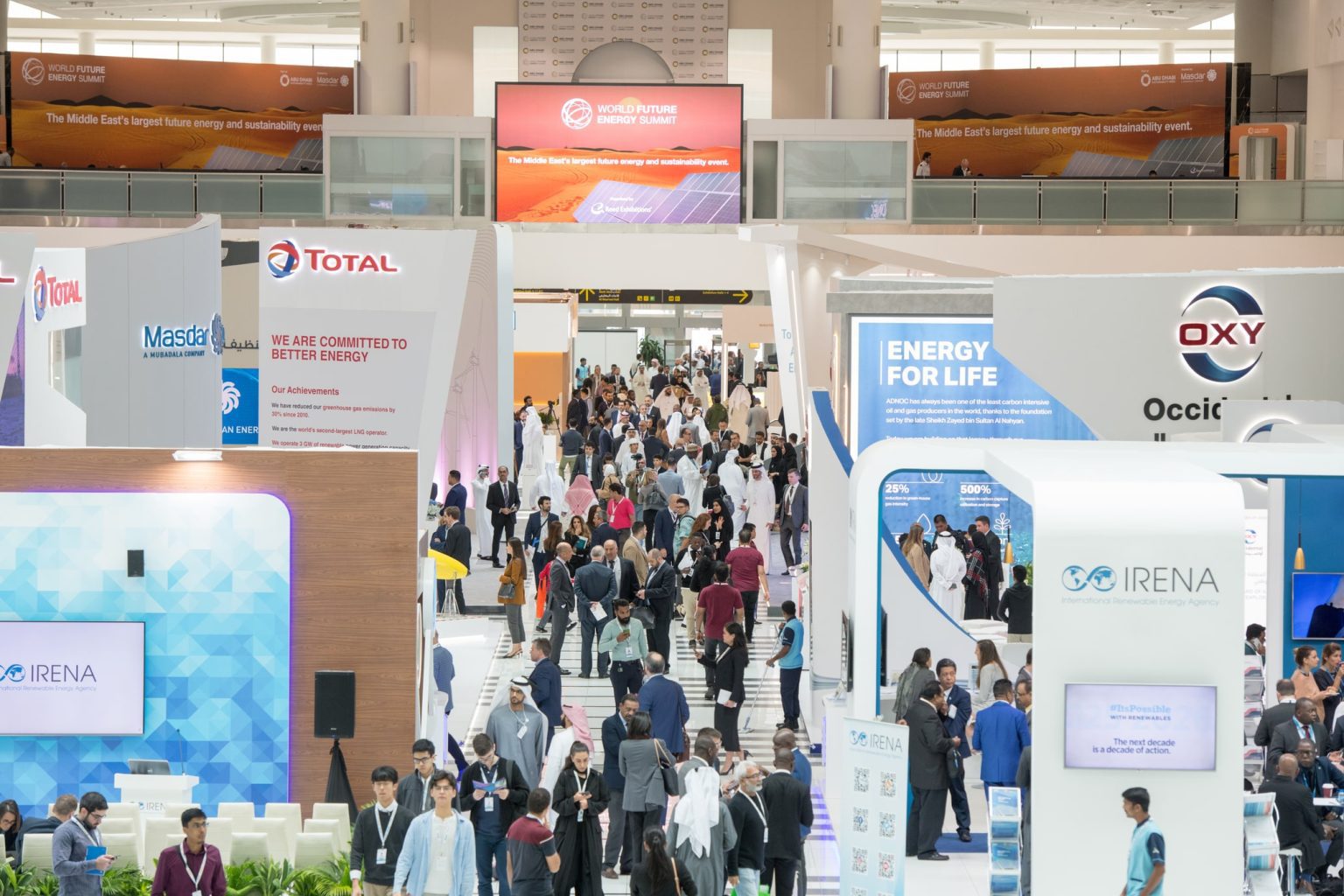Global Energy Industry Gathers in UAE Capital For Game-Changing Meet
Summit To Usher in GCC Circular Economy and New Hydrogen Power Era
Abu Dhabi, UAE –: The World Future Energy Summit – the 14th leading business event for future energy and sustainability – begins a three-day run at Abu Dhabi National Exhibition Centre (ADNEC) tomorrow (January 16) with global energy and sustainable stakeholders eagerly anticipating insights and outcomes to accelerate global and regional adoption of the circular economy and clean energy.
The 2023 Summit will be a powerhouse of inspiration across key sustainability sectors through six exhibitions and five dedicated forums individually addressing today’s vital energy challenges and multi-sectoral impacts. The vertically segmented expos and forums focus on energy, water, EcoWaste, solar, smart cities, climate, and the environment. New to the Summit is the Hydrogen Innovation Hub, which will be running alongside the Energy Expo & Forum and will probe current and future solutions enabling green hydrogen to play a critical role in energy transition.
“This Summit more than any other can deliver a seismic shift in global, regional and local energy operations, policies, plans, investments and overall economic direction,” commented Leen Alsebai, Head of World Future Energy Summit, and General Manager of Summit organiser RX Middle East. “It comes at a time of a worldwide rethink on energy sources, supply resilience and the future-proofing of resources against a backdrop of a mounting clamour for the industry to transform and be at the forefront of tangible action against climate change.”
The EcoWaste Exhibition & Forum, organised and hosted by Abu Dhabi Waste Management Center – Tadweer, will be a forerunner to the GCC’s adoption of circular economy leadership as the region and wider Middle East dials up efforts to tackle their long-tolerated, urbanisation-induced waste dilemmas. EcoWaste participants will explore the GCC’s innovative approach to sustainable waste management, and game-changing solutions poised to help address the Middle East and Africa’s waste crisis, which the World Bank estimates will double to 255 million tonnes a year by 2050.
“There is a growing realisation of the urgency of the dilemma with the GCC currently generating between 105 and 130 million tons of waste a year, primarily from Municipal solid waste, construction and demolition, and agriculture,” explained Alsebai. “The latest industry forecasts suggest US$ 60-85 billion needs to be invested across plastic, concrete, cement, metal, and bio-waste value streams over the coming two decades to realise GCC waste management and landfill diversion targets.”
Local, regional, and global experts in recycling, reuse, re-manufacturing, waste management and waste-to-energy industries will share best practice knowledge unleashing a slew of new business opportunities, revenue streams and investment opportunities for businesses and start-ups across multiple sectors. The Forum will host prominent keynotes, case studies and panel discussions that deep dive into disruptive approaches to create new value from waste, technology for waste management, landfill diversion strategies, waste-to-energy studies, the end of single-use plastics and improved waste management techniques. It will also feature the UAE & GCC Waste Management Forum – a high-level GCC municipality discussion on ways to further the region’s sustainable waste management practices.
The 2023 Summit will also debut a Green Hydrogen Innovation Hub, which will demo solutions to accelerate green hydrogen adoption in the regional and global energy transition. The Hub is running alongside the Summit’s Energy Expo & Forum and brings together key technologies enabling the production, transport, storage, and use of green hydrogen. The Hub will address green hydrogen’s potential and innovation acrossthe full value chain, including electrolysis and conversion technologies, transport solutions, zero-emissions mobility, decarbonisation of industrial production processes and of buildings’ power consumption, large-scale storage, carbon capture, utilisation and storage, waste to hydrogen and hydrogen to ammonia conversion technologies.
At the Hub innovators from South Africa, Australia, the UK, USA, and Spain present solutions across green hydrogen usage, finance, production, and consulting.
The Summit’s knowledge-sharing programme is the most extensive to date delivering in excess of 200 hours of expert and informed content across specialised Forums and subjects. A highlight is the new one-day-only ENOWA ENACT conference on January 17th from the energy, water, and hydrogen subsidiary of the new Saudi smart city NEOM.
“This session is being presented by the people driving a future of resilient clean energy at-scale,” added Alsebai. “It is a must-attend for those wanting unique insights, inspiration and intelligence from C-suite experts and industry leaders.”
Sustainability in 21st century urban environments will come in for their own scrutiny in the dedicated Smart Cities Forum, which will focus on identifying strategies to reduce transport CO2 emissions, including the impact of electric and hydrogen powered vehicles while global solar industry champions and pioneers will meet with engineering companies, technology providers, financiers, energy buyers, utility providers and government policy makers at the Solar Expo & Clean Energy Forum – the MENA region’s leading solar marketplace.
The World Future Energy Summit is hosted by Masdar and is part of Abu Dhabi Sustainability Week, a global platform for accelerating the world’s sustainable development. The event is also, for the first time ever, held in partnership with ENOWA.




